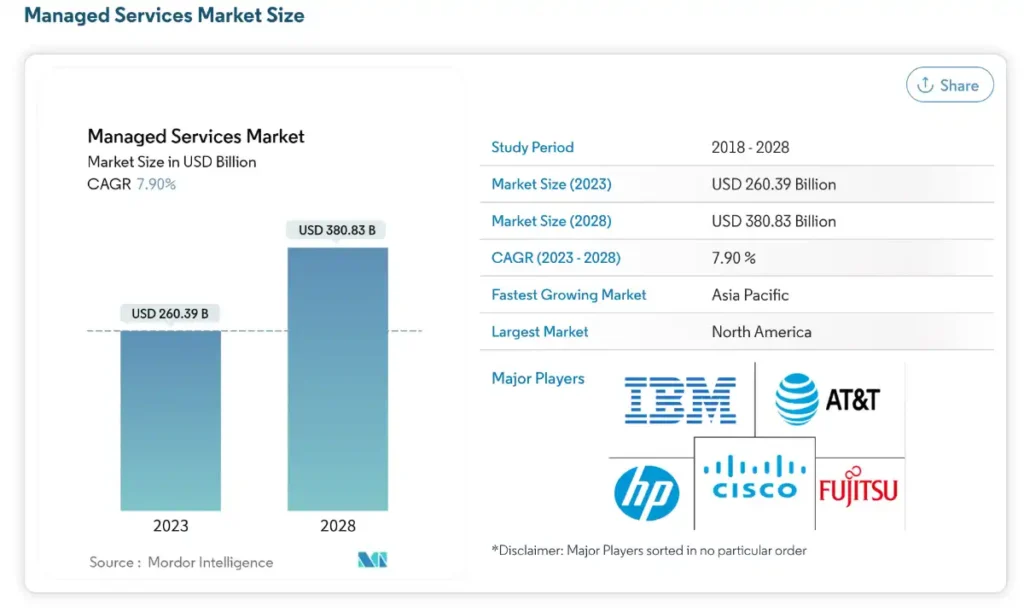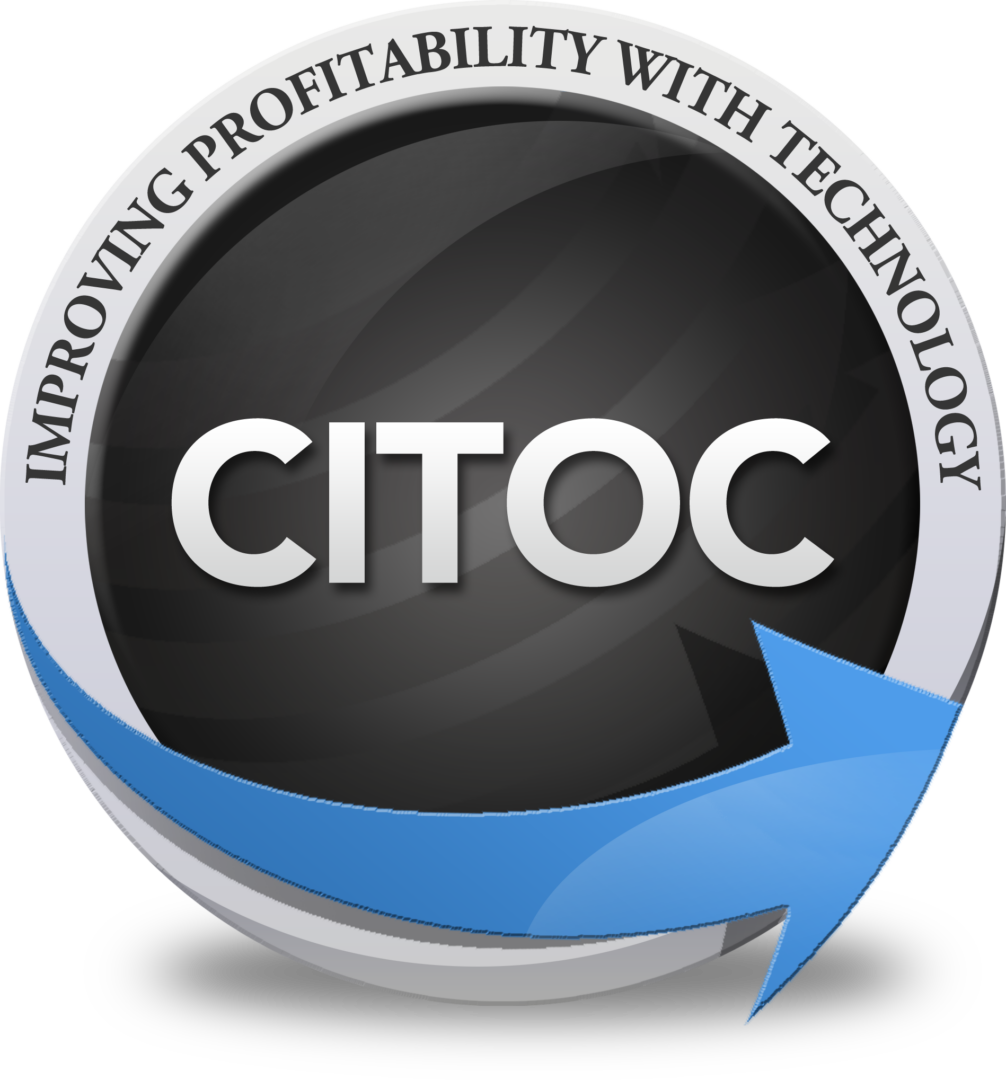As companies strive to enhance productivity, streamline operations, and provide impeccable customer experiences, the role of managed IT services has emerged as a critical component for success. But what are managed IT services, and why does your business need them?
As stated by CITOC CEO, Ben Farmer, “Having spent years at the helm of an IT service provider, I’ve witnessed firsthand the transformative impact that managed IT services can have on businesses. What most small business owner’s miss is the “total cost” of systems being down in their business. When computers stop it’s not just the cost of the employee in labor, benefits, taxes, etc. but it’s also the opportunity cost to the business of the loss of time and production that matters to the customers they serve.
In this comprehensive guide, we will delve into the world of managed IT services, unraveling their significance, exploring a formal managed IT definition, as well as the many ways they can empower your business to thrive.
The Initial Question: What Are Managed IT Services?
What are managed IT services? Good question — managed IT services by definition involve entrusting the intricate web of your company’s information technology operations to a dedicated team of experts.
Good MSPs not only possess the technical know-how to navigate the complexities of modern IT but also take the time to acquire a deep understanding of your business’s unique needs and aspirations. This dynamic collaboration transcends the traditional break-fix approach, as managed IT services encompass a proactive and holistic strategy.
| Discover the True Value of our IT Services, Today: |
From monitoring and maintaining your network infrastructure to ensuring cybersecurity measures are top-notch, managed IT services’ is an important part of your business’ success.
These services are so in demand that the MSP market is expected to reach USD 380.83 billion by 2028. What’s more, the professional services market is to expand at a compound annual growth rate (CAGR) of 9.1% from 2023 to 2030.

Image Credit: Mordor Intelligence
What is the IT managed service provider’s role in your company? To work hand in hand with your internal teams, fostering open communication, collaboration, and knowledge-sharing. Let’s take a closer look at how managed services work and why your business needs them.
How Managed Services Work: A General Overview
In terms of how managed services work, unlike the traditional break-fix model (where IT support is sought only when issues arise), these services operate as a proactive and ongoing partnership designed to manage your technology environment preemptively.
There are several different types of service models available, including:
- Per Device: Pricing determined by the number of devices (computers, servers, etc.) being managed or supported.
- Per User: Cost calculated per user who requires IT services or support.
- Flat Fee/Per Month: A fixed monthly fee covering a set range of services and support, often used in Managed IT Services.
- Tiered Service Levels: Different pricing tiers offer varying levels of service and support, allowing clients to choose the level that best suits their needs.
What Managed Services Are Right For Your Business?
Find out with a complimentary assessment!
Contact Our Experts NowDifferent Types of Managed IT Services
In the realm of today’s digital landscape, choosing the apt managed IT services tailored to your enterprise isn’t just about ticking boxes; it’s about crafting a bespoke digital strategy that resonates with your unique business DNA. Let’s delve into some of the quintessential managed services that businesses often gravitate towards:
Network Support: At its core, this is about fortifying the very backbone of your digital operations. It ensures that your network isn’t just functional but is optimized, fortified, and humming at its zenith. This encompasses vigilant monitoring, adept troubleshooting, and meticulous upkeep of network elements.
Managed Security Services: In the digital age, this is your virtual fortress. Beyond the jargon, it’s about safeguarding your digital realm with robust measures like firewalls, antivirus mechanisms, intrusion detection, and periodic security assessments to thwart potential cyber adversaries.
Data Backup and Disaster Recovery: Think of BDR as your digital safety net. It’s the ritual of consistently archiving pivotal data and having a blueprint for swift data resurrection in the face of unforeseen calamities or data mishaps.
24/7 Help Desk: This is your IT guardian angel, ever-present to lend a technical hand. They’re the sentinels ensuring seamless IT operations, addressing glitches, and offering solutions round the clock.
IT Consulting and Strategic Planning: Here, seasoned IT professionals step in, offering their wisdom to ensure your technological endeavors are in harmony with your overarching business aspirations, sculpting a forward-looking IT roadmap.
Vendor Management: This is the art and science of orchestrating symbiotic liaisons with tech vendors, ensuring you’re always at the receiving end of timely and top-tier tech offerings.
Performance Monitoring, Optimization and Alignment: This service is akin to a digital health check-up, perpetually gauging system vitality and finetuning it for peak efficiency and agility. It is making sure that you I.T. environment is technically assessed and aligned with industry standards and best practices.
Cloud Computing Services: In the vast expanse of the cloud, MSPs are your seasoned navigators, overseeing your cloud terrain and resources, ensuring you reap the benefits of performance, adaptability, and fiscal prudence in your cloud endeavors.
As you embark on this journey of IT service selection, it’s paramount to ensure your IT blueprint is in consonance with your grander business vision. For instance, if your sights are set on rapid expansion, anchoring your strategy in cloud management and its inherent scalability might be the order of the day.
| Become your company’s resident subject matter expert on managed IT services today: |
Why Entrust Your IT Operations to CITOC?
After exploring a formal managed IT services definition, the different types of pricing models, and the many types of services available, it’s clear that they offer a comprehensive and proactive approach to handling your organization’s technology needs.
At CITOC, we recognize that your business is unique, which is why we eschew the cookie-cutter approach. Instead, we craft bespoke IT strategies that align seamlessly with your specific goals, challenges, and aspirations.
Discover managed services meaning with CITOC – today.

